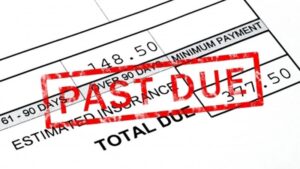Understanding your insolvency practitioner (IP)

When attempting to restructure or liquidate a company you will need a strategy designed for your specific requirements and circumstance. Lawyers are expensive and a licensed insolvency practitioner (IP) may not be able to provide you with impartial advice.
In these situations, it’s always best to seek the support and guidance of an independent professional who can:
- Develop a bespoke strategy for your business
- Recommend friendly and reasonably-priced insolvency experts to help you execute it.
IPs act in variety of managerial positions, including as a:
Trustee in bankruptcies
Liquidator in liquidations
Monitor in a moratoriums
Administrator in administrations
Nominee and supervisor in company voluntary arrangements (CVAs)
They earn money when companies enter into any of the statutory insolvency measures listed above. As a result, it’s unlikely an IP will recommend any alternative procedure or say something like:
“I’ve looked at your books and records, you’re insolvent. Carry on trading.”
Security deposit box
Once appointed, an IP will relieve the director of their duties and take over many of their responsibilities. In many ways, calling in an IP is like giving someone the keys to your safe deposit box or vault.
The comparison is particularly appropriate when a company enters administration as the director must concede full control of the company to the IP.
Once they are in charge of your business, the IP will call the 2 key players in their network. The lawyer and appraiser will respectively handle legal matters and get the best value for the assets the IP sells.
To be fair, an insolvency practitioner’s job can sometimes be tricky, irrespective of the insolvency procedure. They must be very careful what they say to a director, especially in the preliminary stages. This is because after the IP has been appointed, they may have to turn around and challenge that same director.
It’s also worth remembering the quality and value of your assets will be the IP’s primary concern because their fees come from realised assets.
Debtor Alert: Theodore Global Ltd
Theodore Global Ltd: A Company That Fails to Pay Its Staff and Trades While Insolvent If you’re thinking about working with, or for Theodore Global…
Read MoreIrene MacKenzie- The Gatekeeper of Silence
Irene MacKenzie and the Web Around William Jackson In the shadows of the alternative investment world, where buzzwords are abundant but redemptions are not, one…
Read MoreThe Grim Truth for Loan Note Holders -79th Luxury Living Six Ltd (LL6)
No assets or safeguards. No clear path to recovery. If you’re one of the many investors who entrusted your money to The 79th Group’s loan…
Read MoreOverdrawn Directors’ Loan Accounts: How to Avoid Trouble
Many company directors borrow money from their businesses through what’s known as a director’s loan account (DLA). In principle, there’s nothing wrong with this, so…
Read More



